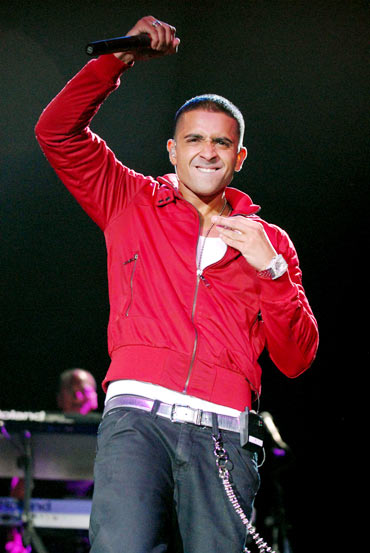
Last month the Trump Taj Mahal auditorium in Atlantic City was buzzing with young Indian American teenagers -- more girls than boys -- as they watched a handful of opening acts.
But they were all there for one reason -- the hugely popular Indian British pop star Jay Sean.
Sean did not appear on stage till 11 pm, but it was worth it.
His fan screamed hysterically, "We love you Jay Sean!"
There were few parents in the audience, but most of the teens, some on dates, and others in large groups, were joyful beyond belief.
Dressed in a red jacket and red shoes, chains attached to his belt and tight low-hanging black jeans, he appeared on stage wearing sunglasses. Later he took the glasses off and even that act resulted in hysterical screams. For the next hour Sean strutted on the stage, singing one hit after another, including Down, Do You Remember, Ride It and new hit single 2012 (in which he has performed with Nicki Minaj) from his forthcoming album Freeze Time.
At times he would glide around the stage, grabbing his crotch a la Michael Jackson. At other times he would kneel on one end of the stage with young teens throwing their hands towards him. He would touch some hands, leaving others aflutter. The audience -- including some who were younger than 10 -- knew his simple lyrics and sang along. It was quite a spectacular and entertaining show put up by a young Sikh British lad from Harlesden, northwest London.
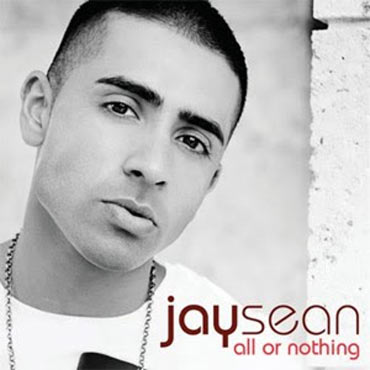
Jay Sean is a tremendous success story for an Indian in the Diaspora -- perhaps the biggest crossover artist in the west whose roots are in India. He career was launched as a member of the Rishi Rich Project with Dance with You (Tere Naal Nachna). The song featured Rich, Sean and Juggy D and reached number 12 on the United Kingdom singles chart in 2003.
Later a contract with Virgin Records resulted in two top 10 solo hits in 2004 in the UK -- Eyes On You (the video shot in a working class South Asian neighborhood in London) and Stolen (inspired by the old Hindi film song Chura Liya Hai Tumne Jo Dil Ko, the video featured Bollywood star Bapasha Basu), part of his debut album Me Against Myself. The album, with tones of Bhangra and R&B fusion, sold more than two million copies in India. To date it is his most successful album.
In 2006 Sean founded his own label, Jayded Records and after a gap of four years he was back with reinvented self. He had dropped all of his Indian-British roots in the new pop single Ride It. In the video that accompanied the song, he had changed his look with a shorter hair cut, more like African American singers. He was no longer the British Asian singer as he appeared in songs like Dance with You and Stolen.
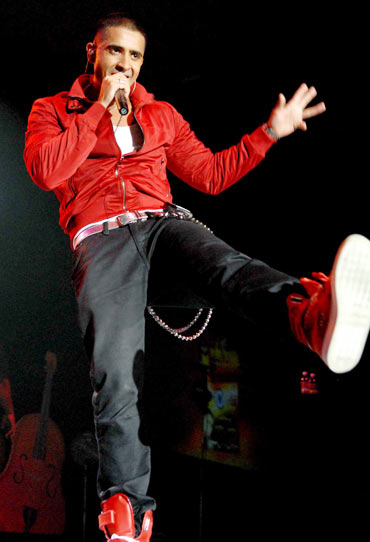
In 2008 Sean signed up with Cash Money Records in the US and that move changed his career for the better, starting with the 2009 single hit Down. The song feature American rapper Lil Wayne and topped the Billboard Hot 100, making Sean the first solo artist of Indian origin and the first UK urban act to top the Hot 100.
Down sold three million digital copies in the US and six million copies worldwide. Down was followed by Do You Remember -- another best seller, with more than a million copies in the US alone. The two songs were part of his third album All or Nothing, which debuted at number 37 on the US Billboard 200 charts.
DJ Rekha, the New York-based founder of the Basement Bhangra Party, noted that Sean's move from his South Asian musical roots may have helped him.
"Unlike other potential crossover stars he didn't over-expose himself within the South Asian community [but] he has a lot of respect there," she said. "Jay Sean has been doing music for years and when given the right opportunity he rose to the occasion. His work ethic and talent are the reason for his success."
In an interview a week before the Atlantic City concert, Sean said it was important for him to evolve. "One thing I learnt from people who are around -- the Madonnas, Princes -- that you have to move with time," he said. "I started eight years ago. That was fresh eight years ago. But you have to keep reinventing yourself, without selling your soul and your identity and without selling what you think is important as an artist. You have to keep listening to the radio and see what the kids like right now."
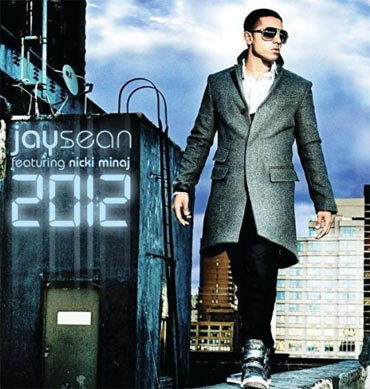
Sean added that his music was labeled differently in the UK and here in the US. "In England I was classified as an urban artist because I wasn't doing what is their definition of a pop musician," he said. "Also because I was an ethnic minority, they pushed me to the urban box. Coming to America, I am not an urban artist here. I am a pop artist here, but with an R&B influence. Urban musicians here are big soul singers. They are completely different."
Jay Sean was born Kamaljeet Singh Jhooti to Sikh immigrant parents northwest London. He does not reveal his year of birth, perhaps for professional reasons. Different Internet sites list his year of birth ranging from 1979 to 1983. When asked about his age he started by joking, saying "I am actually 14." He then added, "To me everyone gets concerned about the age and how old I am. It really doesn't matter and you guys can find out. Google it. That's the fun. It's a game."
His father owns several businesses and his mother is a beautician. He attributes his persona Jay Sean -- the successful musician - to his preteen days and the kind of music he was listening to at that time.
"Being an Indian Sikh lad, not only did I listen to Punjabi and Bollywood film music that I would hear in my house," he said, "but, I must have been around 11 when I started listening to hip-hop. At that time I was a fan of De La Soul. From there my love went to R&B and I started to listen to big soul singers -- Stevie Wonder and Lionel Richie. So from a very young age, my musical taste is what caused me to go down this path."
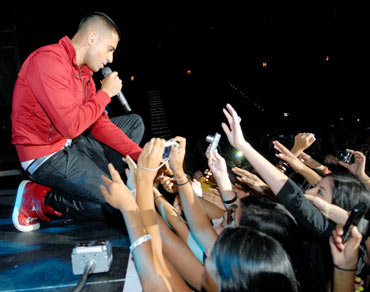
And all was fine in the Jhooti household with Sean's musical taste.
"My parents loved it," he adds. "Because actually they also listened to lot of soul. I remember listening to Michael Jackson's Off the Wall on repeat because one of my aunts would listen to it."
Sean started his hobby of rapping at the age of 11, when he was part of a band called Compulsive Disorder, with a cousin. In those days he went with the name of MC "Nicky J."
After attending a private school, Sean joined London's Queen Mary's School of Medicine & Dentistry to get a medical degree. But after two years he abandoned medical school to pursue music. The name J (from Jhooti) stuck with and he made his first professional name Jay. Sean comes from Shaan -- a name apparently given to him by his grandmother.
The Sikh British boy from London never brought up his ethnicity in the US.
"They didn't know what I was," he said. "If I am honest -- and here's the most important thing -- they don't care. They are not discriminating. To them I am just a guy who sings a great song they like. In America our skin color is similar to the Spanish, the Greeks, the Italians."
"If they have to focus on something, they focus on my accent," he added. "They are like 'You are from England' and I say 'Yes' and we are off to talking about England, instead of whether I am from India or Pakistan."
He still maintains connections with his Indian roots. Last year he was the grand marshal at the India Day Parade in New York City. And his Atlantic City concert coincided with the first India Day Parade on the city's boardwalk.
"As much as my music and career has gone mainstream, it doesn't mean I don't want to get involved in the desi side of things, which is where I started," he said. "This is familiar for me, like going home for mom's home cooked roti (he pronounces it in the Punjabi British as way rutt-ee). You feel nice. I feel at home with my community here."